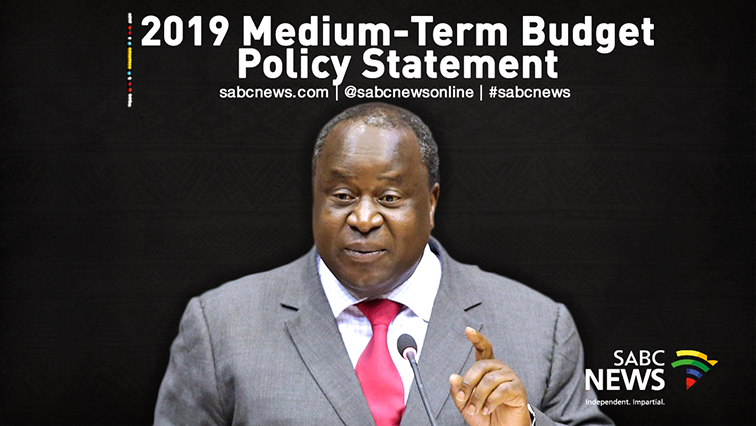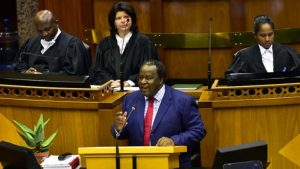Cosatu fears that government may set its sights on ordinary public servants in its drive to reduce the wage bill.
Finance Minister Tito Mboweni said in his Medium-Term Budget Policy Statement in Parliament on Wednesday, that the number of public servants earning R1 million a year has doubled in the last three years. After adjusting for inflation, the average government wage has risen by 66% in the last 10 years.
Mboweni said things needed to change so that South Africa could return to a path of robust economic growth.
Cosatu’s first Deputy President, Mike Shingange says, “It’s not at the service delivery or front line departments in nurses, in Home Affairs, in Justice, Police… that’s not where the public servant wage bill is bloated by the way – but when you go a bit up, of course that is where something needs to be done there. It is not correct that when the economy is not doing well, as the private sector you rush the workers that are the ones to be blamed, while they are not responsible for the economic choices that we make as government.”
Meanwhile, Congress of the People (COPE) leader Mosiuoa Lekota says the government is making a fatal mistake by continuing to bail out state-owned enterprises. Lekota was responding to Mboweni’s Medium-Term Budget Policy Statement.
Mboweni says in order to meet unanticipated cash needs, they have brought forward R26 billion for Eskom in 2019/20 and R33 billion in 2020/21 as well R10 billion in 2021/22.
Lekota says SOEs continue to be a huge drain on the fiscus:
“When he begins to say we will no longer give you bailouts, you must borrow the money and invest it productively so that you can pay your debts and so on… now that is the right step to go in, instead of keep giving free money. The purpose for state owned-enterprises is so that they make profits and contribute to the fiscus if they are no longer making profits close them down.”
The African National Congress (ANC) says it supports the measures outlined in the Minister’s address. In a statement the governing party says it welcomes the commitments made to stimulate the economy, infrastructure development and to assist state-owned enterprises. The ANC also says it notes the measures outlined to reduce expenditure across all spheres of government, and welcomes the reduction of fringe benefits that include fancy cars for political office bearers.
The Democratic Alliance (DA) meanwhile says Mboweni was not tough enough on the debt problem. The DA’s Jordan Hill says the Minister didn’t go far enough: ” Well, I’m afraid for all of the Minister’s tough talk about cutting dead, and cutting the deficit, he didn’t go nearly far enough… debt is going to explode more than 70% of GDP in the next two to three years, and the deficit is going to blow out to more that six and a half percent next year, and that means that we are going to be spending more and more money on paying off our debt than ever before… in two years time we are going to be spending triple on debt than we do on policing and education and health care and even more than we spend on social grants…”
The South African Youth Chamber has also expressed disappointment at Mboweni’s Medium-Term Budget Policy Statement. They were not amused by the minister’s newly-coined term, ‘tiny entrepreneur,’ labeling it an insult.
Mboweni said in his statement before Parliament that President Cyril Ramaphosa was driving the Youth Employment Service, known as YES! through expanding the employment tax incentive.
President of the Youth Chamber Thapelo Maleke says the new term is an insult and the Youth Employment Service is not helping alleviate youth unemployment.
“I was expecting the good news for our young entrepreneurs, but they are now being relegated from being small to tiny and the Minister of Finance is excited that he crafted a new term called ‘tiny entrepreneur’. That is an insult. You know, we are working hard to ensure that indeed we succeed, so that these SMME’s can create job opportunities and absolve the large numbers of young people who are unemployed. So this matter it is not a joke. YES is not creating jobs. It gives young people a 12-month work experience. The only solution is to invest money into the youth entrepreneurship programmes,” says Maleke.
Watch videos below for more on the story:






